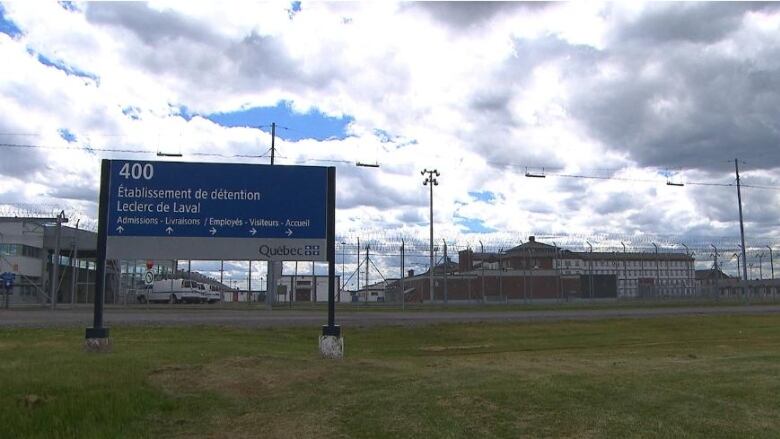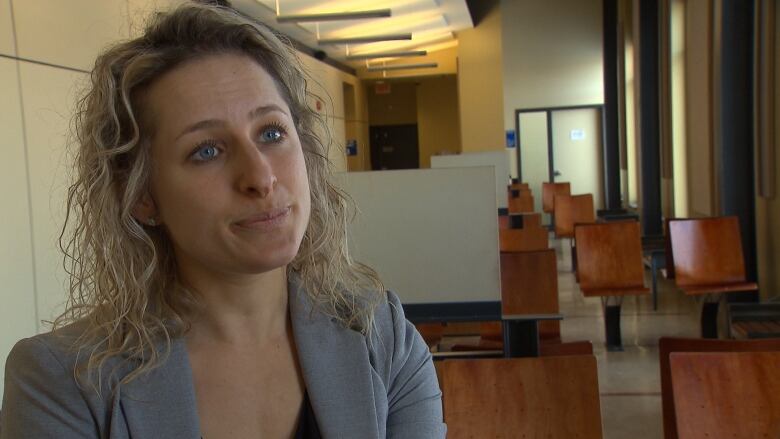Superior Court rejects injunction to force Leclerc women's jail to improve conditions
Judge says courts aren't best venue to address living conditions, but issues order to heat building properly

Quebec Superior Court JusticePaul Mayer has refused to grant a temporaryinjunction to force the LeclercInstitution, awomen-only provincial jail in Laval, to improve the conditions of detentionfor two inmates.
Detainees have complained for years about what they describe as decrepit and deterioratingconditions atLeclerc, and today, lawyer Mlanie Martelfiled an injunctionrequest at the Saint-Jrmecourthouse on behalf of two inmates to force the institution to make improvements.
Mayer said the courts are not the best place to address such issues. But despite refusing to issue the temporary injunction, he got Quebec's correctional services agency to commit to heating the building properly.
Martel said simply getting that commitment is a step forward.
She said in his ruling, the judge hasgivenher clients a chance to obtain a permanent injunction more quickly,by waiving the requirement that they seek an interlocutory injunction.
"What is happening is worrisome," Martel said. "The judge acknowledged the gravity of the situation."
The two inmates, one of whom is a 71-year-oldwith mobility problems, reported a multitude of problems, including poor water quality, difficult access to showers, heating problems and general uncleanliness.
"The plaintiffs have a veritable interest in halting the unusual treatments and inhumane detention conditions," the injunction request reads.
Theinmates also denounced strip searches, which reportedly are conducted in front of other detainees. They say staff have behaved inappropriately during the searches.
One inmate, Louise Henry, who was incarcerated fromDecember 2017 until lastMay, said the conditions were horrible.
The numberof times inmates were strip-searched was especially significant, Henry said.
"I found that very abusive and degrading," shesaid. "You can tell they're used to a clientele that is much more criminalized."
Leclerc used to be a high-security federal penitentiary, until it was rented to the Quebec government in 2014.
Improvements on the way: correctional services
Quebec's correctional services agency has admitted there are problems at Leclercbut said improvements are being made.
The agency, too, said complaints should be madeto correctional services, withinQuebec's Public Security Ministry, rather than brought before the courts.
The ministry said it would examine the file closely, but declined to comment for now.
A coalition of activist groups, including the Ligue des droits et liberts and the Fdration des femmes du Qubec, has spoken out about the institution's unsafe architecture, which it says is unsuitable to women's needs.
The coalition also criticized the small size of the cells, lack of access to rehabilitation programsand the lack of quality health care.

Under the previous Liberal government, the former public security minister, Martin Coiteux, set upa committee to examine the situation at Leclerc andissues relating to the incarceration of women.
The committee's lack of transparency was criticized by the coalition's spokesperson and UQAM legal sciences professor Lucie Lemonde in September.
Lemonde told Radio-Canada one of the main issues at the prison, when it comes to fundamental rights, are the strip-searches.
"We aren't just hearing this from one source. There are many," Lemonde said.
With files from Radio-Canada's Jacques Bissonnet












_(720p).jpg)


 OFFICIAL HD MUSIC VIDEO.jpg)
.jpg)



























































































